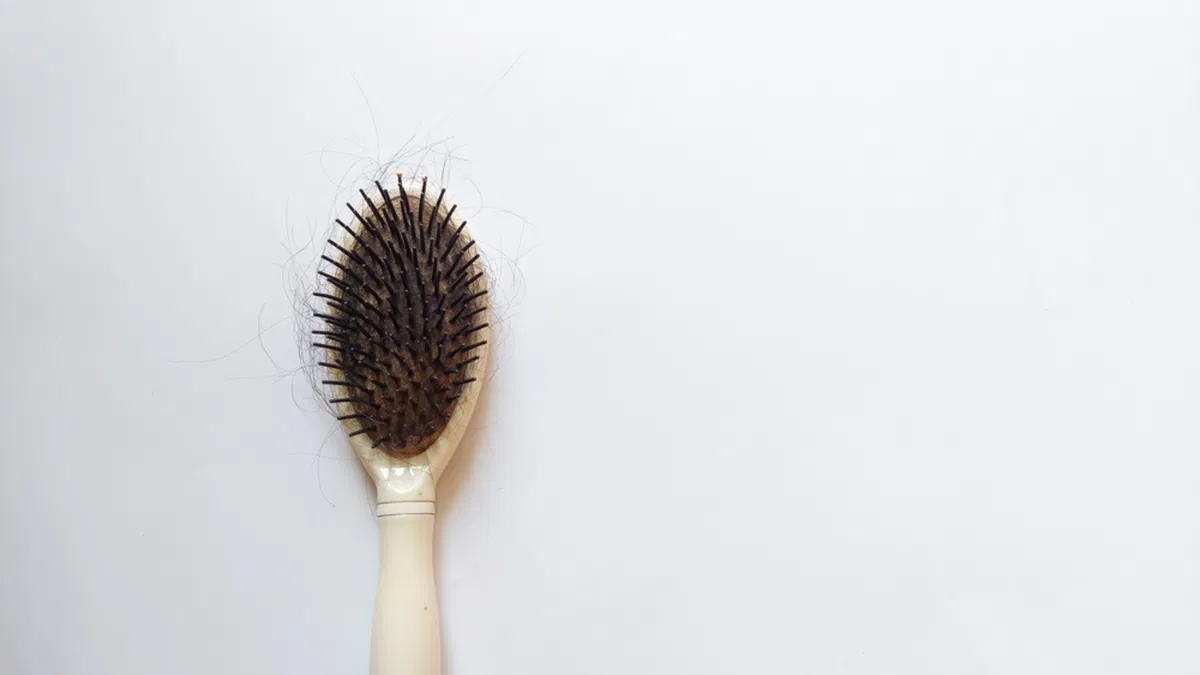By Letara Draghia
Copyright euroweeklynews

Not only do the leaves fall in autumn, but our hair can too.
Personally, I have noticed more-than-usual hair loss in my brushes, after showering, and on my pillow in recent weeks. Turns out, it is normal for this time of year, to an extent.
What causes seasonal hair shedding? On first thought, it didn’t make sense to me. Surely, we need more hair on our heads to keep us warm for winter? Read on to find out why we lose more hair during autumn.
What is seasonal hair shedding?
Seasonal hair shedding is the temporary increase in hair loss that happens mainly in autumn and, for some, again in spring. A long-term study published in the British Journal of Dermatology found that the number of shed hairs peaks in late summer and early autumn, with participants losing “about 60 per day, more than double that during the preceding winter.”
Similarly, a six-year study of over 800 women confirmed annual periodicity in hair growth, showing “a maximal proportion of telogen hairs in summer” and more shedding in autumn.
Dermatologist Dr. Christian Merkel explained to Vogue, “Hair grows in a fixed cycle… In evolutionary terms, our hair is part of our coat. Accordingly, there is also a shedding cycle.”
So, why does our hair fall out more in autumn?
Several overlapping factors contribute to this seasonal pattern:
Sunlight and hormones: According to Capilia, the sun stimulates hair growth hormones in summer. When UV exposure decreases in autumn, hair growth slows and more strands enter the shedding phase.
Natural cycles: Hair has three phases – growth (anagen), transition (catagen), and shedding (telogen). The hairs that fall out in September often stopped growing months earlier in spring.
Environmental stress: Colder weather, reduced humidity, and indoor heating can make strands brittle and prone to breakage. Consultant trichologist Samantha Stewart said to GB News, “The colder months bring a perfect storm of hair-damaging conditions.”
Vitamin D levels: Shorter, darker days mean less sunlight, and consequently lower vitamin D, which is important for healthy hair growth.
How long does autumn hair shedding last?
Experts say seasonal shedding usually lasts up to three months. According to Mesoestetic, it is “normal and more abundant” during this time, but the hair loss should not reduce density permanently and should stop once the growth cycle restarts.
However, if hair loss continues beyond this period or appears patchy, dermatologists advise seeking professional help to rule out other conditions such as genetic alopecia, thyroid problems, or hormonal imbalances.
Why do we shed warm hair just before winter?
At first glance, it seems odd that the body would shed hair in autumn, just as colder weather sets in. But experts say the timing reflects biology, not a flaw.
Research suggests more hair enters the growth phase in summer to protect the scalp from the sun’s rays. Once the need for UV protection decreases, the body allows these strands to shift into the shedding phase.
Can seasonal hair loss be prevented?
You can’t stop the natural cycle entirely, but you can reduce damage and support healthy regrowth:
Wash and brush as normal, but be gentle with styling: Stewart warned against “tight ponytails or braids” and advised limiting heated styling tools, which can make fragile hair worse.
Protect from hats: Rough winter hats can cause friction and breakage. Silk or satin linings can help to reduce damage.
Eat nutrient-rich foods: Dermatologist Dr. Emi Arpa stressed to Vogue that “nutritional deficiencies can also lead to hair loss” and recommended foods rich in iron, omega-3s, zinc, and biotin.
Stay hydrated: Dry winter air can make hair brittle, so drinking enough water and using hydrating products is important.
When seasonal hair shedding is excessive
While seasonal shedding is normal, continuous or severe hair loss may signal something else. Dr. Arpa noted that stress, pregnancy, perimenopause, or certain medications can all affect hair cycles, and “only a doctor can determine” the exact cause.
If shedding lasts longer than three months, experts recommend a blood test to check for deficiencies or hormonal imbalances.
For most, autumn hair loss is a temporary nuisance and part of the body’s natural rhythm, just like falling leaves. But with hair loss Google searches in the UK rising by nearly 400 per cent in the past month, it’s clear the topic touches a nerve.
View all health and beauty news.
View all lifestyle news.



